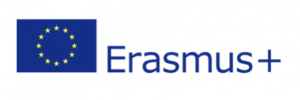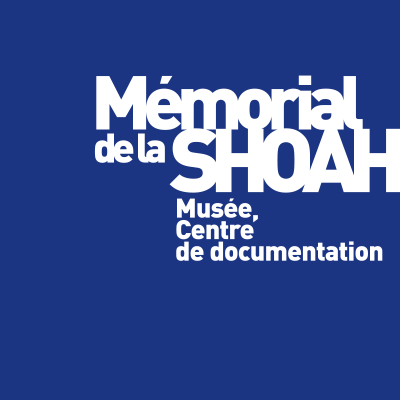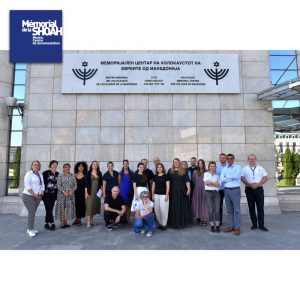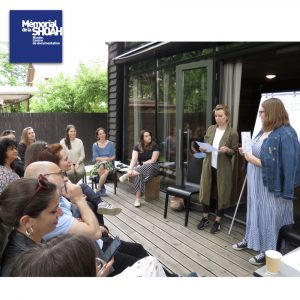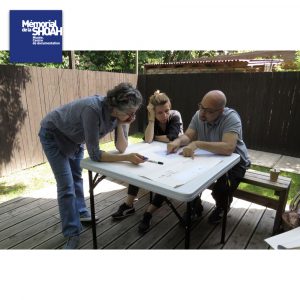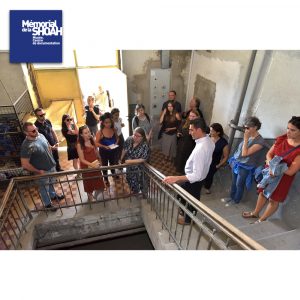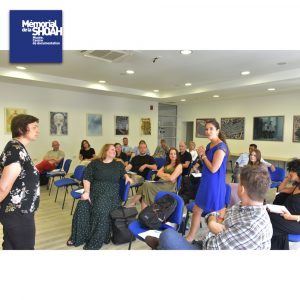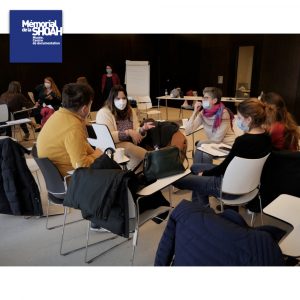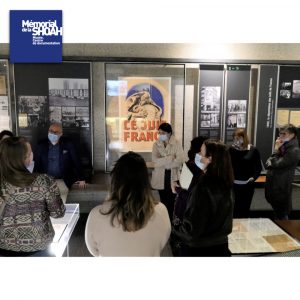"Approach to non-violent communication in adult education in historical museums and places of memory" Erasmus+ project
Since 2021, the Shoah Memorial, in collaboration with the Museum of the History of the Jews of Poland POLIN (Poland), the Žanis Lipke Memorial (Latvia) and the Holocaust Fund of the Jews of Macedonia (North Macedonia) participates in a seminar «Approach to non-violent communication in the Adult Education Project in historical museums and places of memory». The project, which is part of the Erasmus+ programme, aims to experiment with the "non-violent communication" model in the daily work of institutional teams and, through it, to activate the adult public in the field of expanding their knowledge about the Holocaust in Europe.
Non-violent communication (NVC) is a model developed by Dr. Marshall B. Rosenberg, psychologist and peace activist, in the 1960s. Its vocation is to promote dialogue between peoples and build societies based on empathy and taking into account the needs of each one.
The Shoah Memorial was invited to participate in the project by its initiator and sponsor, the POLIN Museum in Warsaw. The practice of partner institutions shows that through NVC, the evocation of social discussions, often emotional or conflictual, charged with difficult political contexts, stereotypes, requires special attention.
During the seminars, which were already four (one online), the consortium members exchange experiences related to difficult situations in relations with audiences and practice using the NVC model in their work.
One of the first seminars, in February 2022, was held at the Shoah Memorial in Paris. The French team was represented by the head of the pedagogical service and members of his team, as well as by the international relations department. The partners' representatives were practicing NVC and discussing difficulties encountered with the public in the French context. These include, among other things, the diverse knowledge of the guests on terminology related to concepts such as the Holocaust, genocide, ethnic cleansing, as well as the phenomenon of memorial clashes around the Holocaust between various social groups in France. In each of the cases discussed, participants tried to imagine the emotions of the visitors and the needs that are hidden behind them.
Learn more about the February seminar at the Shoah Memorial in Paris
The Shoah Memorial team continued to deepen knowledge and reflection on NVC during the next seminar held at the Žanis Lipke Memorial in Riga in June 2022. While the Paris meeting ended on 23 February, on the eve of Russian aggression against Ukraine, the consortium decided to include the context of the ongoing war in their debates. The June seminar in Riga was therefore devoted not only to historical issues and visits to historic sites but also to the role of NVC in the face of contemporary war and the social polarisation that takes place in this context in Latvia.
The facilitators of the Shoah Memorial were delighted with the content of this seminar. They found useful ideas and exercises to share with the rest of the team in Paris and Drancy, but also to implement with the students during visits and workshops.
Read more about the June seminar at the Žanis Lipke Memorial in Riga
The next opportunity to practice the NVC model in visitor treatment was a seminar at the Holocaust Memorial Center for the Jews of Macedonia in Skopje in September 2022. The participants gained in-depth knowledge of the complex, historical and contemporary position of North Macedonia in the Balkan region and in Europe. The training program focused on describing the historical context of the fate of Macedonian Jews, 98% of whom perished during the Holocaust. The second key question was how Macedonian history influences contemporary international relations and memory conflicts, including those around the Holocaust.
«The exchanges as well as the presentations were very rich, and allowed us to better understand certain contemporary geopolitical and memorial issues, notably in the European context. The different sessions of the CNV and an organized visit to places of memory have broadened our perspective and knowledge on the ways in which each institution must deal with a past or a national history," explains Delphine Barré, coordinator in the educational service of the Shoah Memorial.
Read more about the September seminar at the Holocaust Memorial Center for Macedonian Jews in Skopje
The next training is scheduled for April 2023. The partners will meet at the POLIN Museum of the History of Polish Jews in Warsaw.

